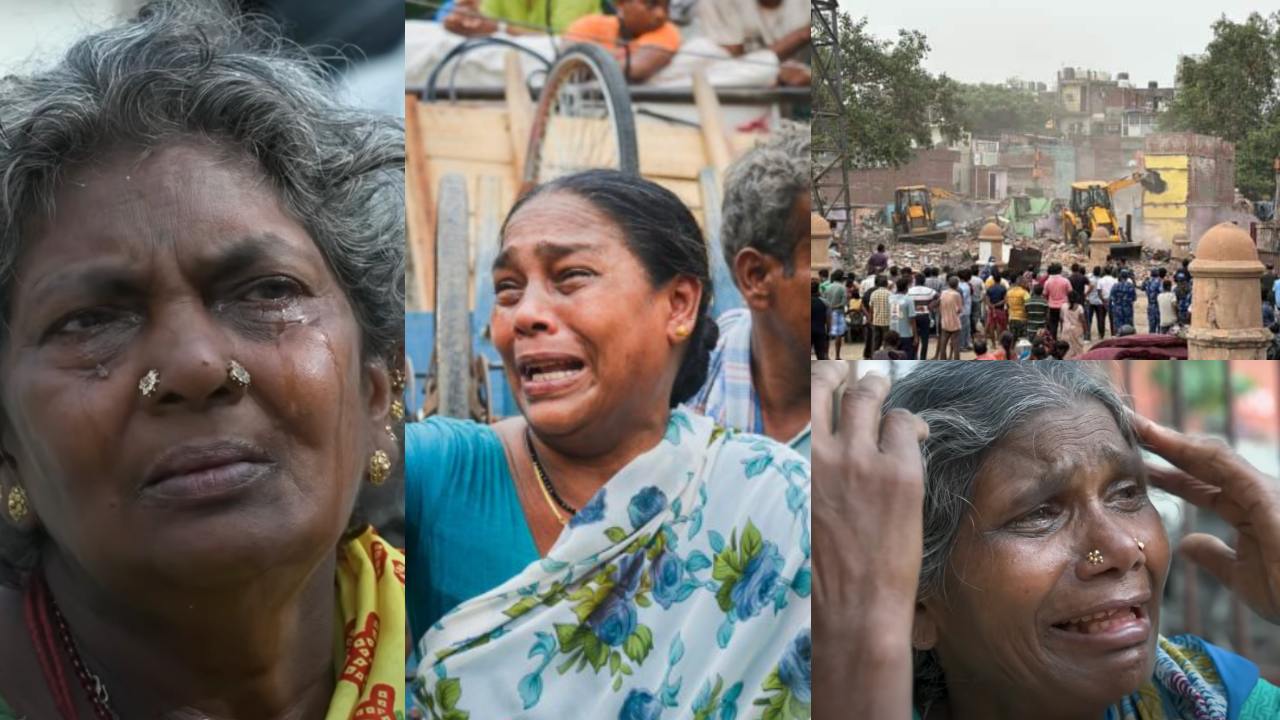370 Tamil Families Bulldozed Out of Delhi Settlement After Court-Ordered Madrasi Camp Demolition
Editor: Chandan M
Published on: June 17, 2025, 4 p.m.

On June 1, 2025, bulldozers arrived at Madrasi Camp, a decades-old settlement in Jangpura, South Delhi, inhabited predominantly by Tamil-origin migrants. The demolition was carried out following a Delhi High Court order, which stated that the encroachments obstructed the Barapullah drain, contributing to frequent flooding in the area. While Delhi Chief Minister Rekha Gupta defended the action as essential and legally mandated, residents and opposition leaders condemned it as a violation of the government's “jhuggi-wahi-makaan” (housing at the same site) promise. Critics argue that the sudden and forceful eviction displaced hundreds without adequate warning, planning, or alternatives. Human Impact Approximately 370 families were affected by the demolition. Of these, 189 families were deemed eligible for resettlement in Narela, a peripheral area located nearly 50 kilometers away. However, only 26 families have relocated. Reports from those resettled describe lack of basic infrastructure, including drinking water, electricity, schools, and job opportunities. An estimated 155 to 181 families received no resettlement support whatsoever. Many are now living on the streets or in temporary shelters, without access to education, health care, or livelihoods. Political & State Response The demolition has triggered a strong response from Tamil Nadu Chief Minister M.K. Stalin, who labeled it a “humanitarian crisis”. He has formally written to Delhi CM Rekha Gupta, demanding dignified rehabilitation for the displaced families and criticizing the Delhi administration for failing to protect the rights of vulnerable communities. The Tamil Nadu government has also offered logistical assistance to those who wish to return to their native state. Meanwhile, Delhi’s BJP government maintains that the action was taken in compliance with court directives. However, the opposition party AAP and various residents have accused the government of breaking its election promises and handling the situation with inhuman disregard for the affected people. Accountability and Systemic Issues The Delhi High Court had ordered the demolition on environmental grounds, prioritizing flood control and public safety. While legally justified, critics argue that the court failed to ensure socially responsible enforcement, particularly in terms of rehabilitation planning. The current BJP-led Delhi government carried out the demolition, but is being criticized for the abrupt execution, inadequate notice, and insufficient alternative arrangements. Previous administrations—primarily AAP and Congress—are also being blamed for allowing the camp to exist for decades without providing legal housing or proactively planning resettlement, thus compounding the crisis. As political parties blame each other, the displaced residents remain caught in a policy vacuum—left to navigate a situation with no clear eligibility rules, no guaranteed housing, and no access to basic services like education, employment, or health care. What Comes Next The affected families continue to demand: Resettlement near the original location Access to Tamil-medium education Basic infrastructure and livelihood support Unless addressed swiftly and responsibly, the fallout from this demolition could escalate into a larger humanitarian and political controversy. Bottom Line The demolition of Madrasi Camp may have been legally sanctioned, but it revealed deep cracks in India’s urban governance—marked by legal rigidity, political blame games, and chronic neglect. The real cost is being paid by hundreds of poor, marginalized families now left homeless and unheard.